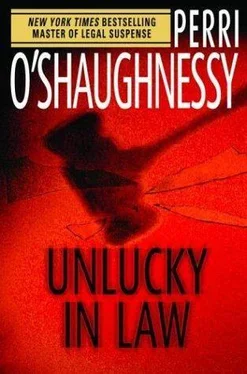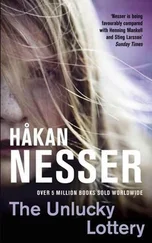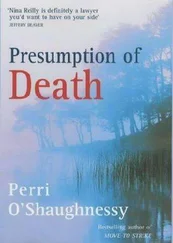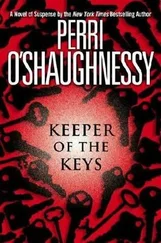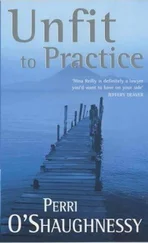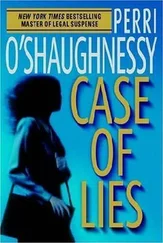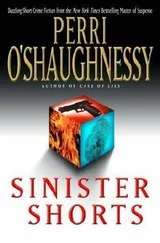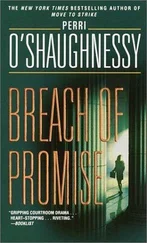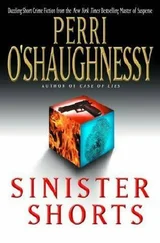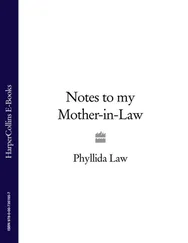So, while appearing sanguine and indifferent to this morning’s witness, Klaus had been listening. Just when she thought his little gray cells had dried to dust, he fired them up and shot the sparks her way.
Klaus had an awful lot of success in the past with this strategy, attacking the psychology, not the actual testimony of the witness. Opening the door to the court, she reflected that what worked for him would not work for her in this case. As many jurors would hate her as hail her for bringing Lumley down a few pegs in a personal attack. Anyway, that was not the way she practiced law. She liked coercing doubt by letting the elegant framework of the cross-examination do exactly what it was intended to do. She didn’t make a good bully, except when it came to logic.
Nina and Klaus greeted Stefan and sat down. Some lingering procedural issues for the judge were dispatched quickly, and she stood up to start the cross-examination.
“Mr. Lumley, in most murder cases, fingerprints provide compelling evidence that a certain person can be proven to have been in a certain place, holding certain items, correct?”
“Yes.”
“You’ve testified at many trials. Aren’t fingerprints often the most telling evidence against a defendant?”
“Yes.”
“And yet you’ve made short work of the fingerprints found at the scene of Christina Zhukovsky’s murder today. Why?”
He smiled genially. “We found little of relevance.”
“Did you find a single fingerprint that would place my client, Stefan Wyatt, at Christina Zhukovsky’s apartment that night or at any other time?”
“We were unable to match fingerprints found at the scene with any on record.”
“No fingerprints in the kitchen that matched his prints?”
“No.”
“No fingerprints in the living room that matched his prints?”
“Correct.”
“In fact, in that entire apartment, which is very large by most standards, nearly two thousand square feet, is there any fingerprint evidence proving my client was there?” She didn’t want him deviating from the point, bringing up the obvious proof Stefan’s blood provided. “Answer yes or no, please.”
“No.”
“Not even a partial print?”
“No. It’s my view that the killer wore gloves.”
“And nothing on any of the pieces of glass recovered?”
“No.”
“Move on, Counsel,” Judge Salas said.
“So the killer wore gloves while he was doing this glass cleanup?”
“That’s my opinion.”
“Then we have a match, don’t we? You found gloves in the defendant’s Honda, didn’t you?”
“Correct.”
“How many pairs?”
“One. Gardening gloves, very dirty.” He was holding People’s Exhibit 37.
“Made of cloth?”
“A loose-weave cotton.”
“And how much glass did you find on the gloves?” Nina turned to the jury, eyebrows raised.
“None.”
“They were made of rough fabric, weren’t they?”
“Yes.”
“And you picked up pieces so small they were almost microscopic off the kitchen floor?”
“Yes.”
“So wouldn’t you have expected to find glass on those gloves?” She had People’s 37 passed along the jury box. The fabric was rough and porous.
“Maybe he had another set.”
“Did you look for another set of gloves at the victim’s condo?”
“We made a thorough search for anything that might be relevant.”
“And no luck?”
“We found no second pair of gloves there.”
“What about at the cemetery?”
“No.”
“Stefan Wyatt’s house?”
“There were several pairs of gardening gloves similar to those found in Wyatt’s car.”
“Any with glass on them?”
“No.”
“Let’s see,” Nina said. “Your theory is that the killer wore gloves, hence the lack of fingerprints on the broom and dustpan. But they weren’t Stefan Wyatt’s gloves, because those gloves probably would have retained at least a microscopic speck of the glass, isn’t that right?”
They all waited for the response.
“Am I stating your testimony correctly?” Nina said.
“To a point. Maybe the defendant didn’t do the cleanup. Maybe the victim did. There were plenty of her prints on both broom and dustpan. Even on the kitchen trash can.”
Nina had been waiting for that. “Sure,” she said. “Let’s follow that theory. The defendant, fearful for her life, threw her glass of brandy at the killer, and the glass hit him and shattered when it hit. With me so far?”
“Yes.”
“So then, putting aside her fear, the victim calmly got out her broom and dustpan and carefully swept all the glass she could into the dustpan and put it into the trash. Was this before or after the killer was strangling her?”
“It could have happened. Some period of time could have elapsed between the glass being thrown and the murder.”
“Isn’t it much more likely that the killer did wear gloves, the killer did attempt to clean up the glass after the murder, and the killer wasn’t Stefan Wyatt since they weren’t his gloves?”
“Then how come he buried the body at the cemetery?”
“Who says he did? After the body was found, and Stefan Wyatt was arrested, did you also conduct a search of the defendant’s home?”
“We did.”
“Did you find any evidence there linking him to the crime of killing Christina Zhukovsky?”
“No.”
“Any trash bags of the same type used to cover her body?”
“No.”
“Any broken glass which matched glass found at the crime scene of the same type in his vacuum?”
“No.”
“In his trash?”
“No.”
“In his vehicle?” Again, Nina was talking to the jury. She wanted them to know how important this lack of evidence was.
“No.”
Very interesting, Madeleine Frey’s rapid nod said.
“Now let’s get back to that blood. Mr. Lumley, did you supervise the physical examination of my client on the morning of April thirteenth, right after he was arrested?”
“Yes.”
“Was there any proof, however small, that he had handled broken glass recently? Any cuts, any invisible shards, anything?”
“No.”
“You found no evidence of broken glass on his clothes, in his pockets, on his hands, in his car, or in his home, correct, Mr. Lumley?”
“Objection,” Jaime said. “Asked and answered.”
“Overruled,” said the judge, happy to be exercising his voice again.
She repeated the question.
“No.”
“Making it very difficult to imagine how he left blood at the crime scene less than twenty-four hours before, wouldn’t you say?” Might as well grab the opportunity to pound that nail in further.
The jury nodded, meditating on the question. How did Stefan leave blood behind in Christina’s apartment? They should take this conundrum to bed with them tonight, and work it, Nina thought. Maybe they would figure out what Nina couldn’t.
“Mr. Lumley,” she said, when he didn’t answer. “How could my client, Stefan Wyatt, leave blood behind at that crime scene, when he never bled?”
“I don’t know,” he said, showing with a deep sigh how disgusted he was that it was so.
Tuesday 9/23
THE BAILIFF OPENED THE COURTROOM DOOR AND BECKONED. NINA watched Alex Zhukovsky straighten his tie and follow him in.
On Nina’s left and right, people fidgeted, always keen to see a new face. Zhukovsky walked the central aisle, all eyes fastened on him, looking as conspicuous and anxious as an executioner on his way to the hanging. Passing through the low gate, he looked toward the tables on his left and right, defense on the left, Stefan’s miserable gaze following him, the jury on the left against the wall. Klaus glared at him. Alex didn’t look at the old man but let his own glance catch on Nina, who ignored him and doodled on her legal pad. As if embarrassed by her indifference, he looked at Judge Salas, a head and black-robed shoulders visible above the massive wooden dais. He stopped where directed. The court clerk told him to raise his right hand.
Читать дальше
